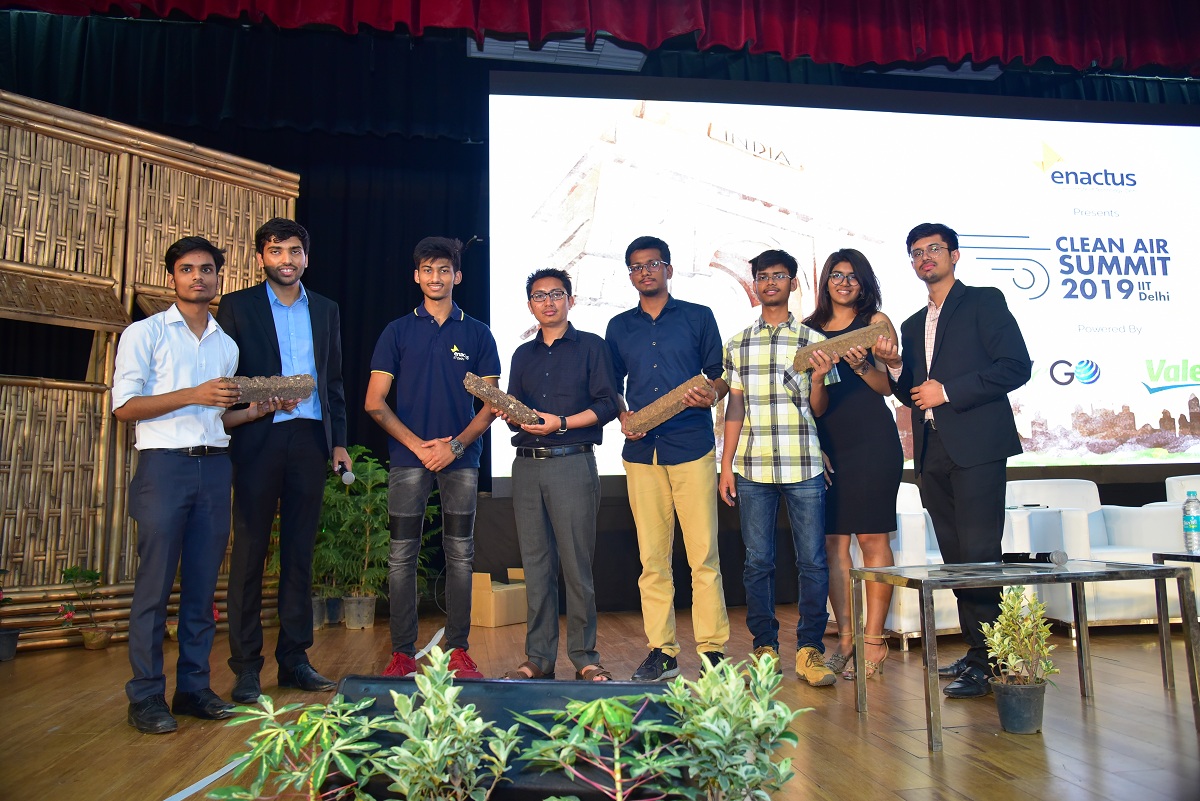Innovation the key at IIT’s Clean Air Summit 2019
At the recently held Clean Air Summit at the Indian Institute of Technology (IIT) Delhi, entrepreneurs, professionals, and students emphasised on the need to innovate and make air cleaner and breathable.
“When I used to go to school, I never carried a water bottle with me and would drink water directly from a tap at school. Today, I give a water bottle to my son when he leaves for school as the water from the taps are not pure. What I am afraid of is that our children might have to carry oxygen cylinders in future if the quality of air continues to deteriorate like this,” ponders Sriram Goplakrishnan, India R&D director, Valeo, a French global automative supplier, at the recently held Clean Air Summit in New Delhi.
India is chocking under pollution. As per a recent study by AirVisual and Greenpeace, seven of the world’s 10 worst polluted cities are in India, with Gurugram, a city about 30 km southwest of India’s capital New Delhi, having the worst pollution levels globally in 2018.
New Delhi, which is home to more than 20 million people, was ranked at 11 in this list, making it the world’s most polluted capital, ahead of Dhaka, in Bangladesh, and Kabul, in Afghanistan.
The AirVisual and Greenpeace index was based on the quantity of PM 2.5 registered last year in tens of thousands of air-quality monitoring stations around the world.
The PM 2.5 can penetrate deep in the lungs and bloodstream of an individual and cause a wide range of adverse health effects, including premature death in the most extreme cases.
The World Health Organization (WHO) estimates seven million people are killed every year due to air pollution; and as per the United States Environmental Protection Agency the non-fatal effects of over-exposure to PM 2.5 include irregular heartbeats, aggravated asthma and decreased lung function.
The causes of pollution are many. Air pollution is happening at domestic as well as commercial levels. “But all the pollution isn’t being monitored properly. Most of the air quality monitors are kept at busy roads only and miss what’s happening across the city. We need to rectify this to be able to make a deeper impact,” an IIT professor remarked at the event.
“India is a design deficient country; and we need to use our culture and creativity to develop the right infrastructure in order to deal with the problem,” pointed out another participant.
Innovating for cleaner air

Member of Parliament of Ladakh, Jamyang Tsering Namgyal launching cow dung logs, a product made by IIT students to combat air pollution caused from burning wooden logs for funerals
Organised by Enactus, a student body at the Indian Institute of Technology (IIT) Delhi, Clean Air Summit brought together policy-makers, diplomats, start-ups, students, and professors to discuss clean technology and sustainable models for future.
Enactus IIT Delhi also launched its flagship project Arth, which deals with the problem of deforestation due to cremations and the associated pollution.
A team of IIT Delhi students showcased cow dung logs- their innovative alternative to the wooden logs used for funerals in India.
Every year more than 16 million trees are chopped for cremation ceremonies. Each of India’s over seven million cremations every year require about 400 kg of wood that equals to about two trees.
While team Enactus laid emphasis on the need of entrepreneurship to deal with the global issue of unhealthy air in a sustainable and scalable manner, speakers questioned the lack of policies to support these causes, the absence of a proper infrastructure and even lack of awareness.
“Breathing unhealthy air is not only creating health related problems but also leading to unethical behaviour and lower IQ level,” pointed Arvind Chabra, country head, Blueair, an air purifier company.
To bring about change we need to bring about awareness and advocate health, he said, adding that more and more local data needs to be collected by the government and released for the public.
Talking on the subject were also representatives from start-ups like Nasofilter, SafEarth, Electric Mobility, who spoke about the clean technologies they have built in line with the 17 Sustainable Development Goals (SDG) prescribed by the United Nations (UN).
As per the UN, the SDG are the blueprint to achieve a better and more sustainable future for all. They address the global challenges we face, including those related to poverty, inequality, climate, environmental degradation, prosperity, and peace and justice.










